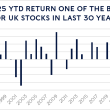There has been much ado about ultra-processed foods (UPFs) amid claims by researchers at Imperial College London that vegetarians “eat more ultra-processed food than do those who also eat meat.” This news might stir significant attention in the health context, as the typical framing focuses on UPFs as the primary culprits behind obesity, diabetes, and cardiovascular diseases. Yet despite this seemingly simple narrative, the reality is far from straightforward. While UPFs are often criticized for their high levels of sugar, salt, and unhealthy fats, it is essential to take a more nuanced view, given that experts remain divided on what precisely constitutes an ultra-processed food – and why it matters.
UPFs are typically defined as industrial formulations made primarily from substances extracted from foods, such as oils, fats, sugars, starches, and protein isolates. They often contain additives like preservatives, emulsifiers, and artificial flavors to enhance their taste, texture, or shelf life. Common examples include instant noodles, breakfast cereals, frozen meals, and carbonated beverages. The convenience, affordability, and palatability of these products have not only made them ubiquitous, but have also made them a staple in households worldwide.
No simple black and white
However, despite their widespread consumption, there is no universal consensus among scientists about what exactly qualifies as “ultra-processed.” Indeed, it could be argued that traditional foods like breads, pasta, cheese or sausages, to name but a few, which undergo significant processing, could also fit the definition, even though they are low on key ingredients criticised for their unhealthiness such as sugar. Conversely, foods like butter, canned fish and meat are high in fat but not necessarily highly processed. This ambiguity complicates public health messaging and makes it challenging to develop clear guidelines. Furthermore, the sheer diversity of products within the UPF category and the overlap with high fat, salt and sugar products (HSFF), as the examples listed above demonstrate, means that not all ultra-processed foods are made equal.
Case in point is a 2022 study on the Nova classification system. The study showed that a significant number of food and nutrition scientists consider the current definition of UPFs is too vague to be of practical value. According to the study, “Even nutrition experts and medical doctors failed to classify 231 foods correctly, because only 4 foods were assigned to the same Nova group by all the evaluators. Thus, the risk of misclassification, even among nutrition and food scientists, is unacceptably high, and these results severely undermine the validity of the UPF concept, and many healthy foods and meals will be misclassified as UPFs.”
A lifeline for food security
In many parts of the world, UPFs are more than just a convenience—they are a necessity. For low-income families, affordable packaged foods often provide a reliable source of calories and essential nutrients. Ready-to-eat or easy-to-prepare options help bridge gaps in food security, particularly in urban areas where access to fresh, unprocessed ingredients may be limited. For example, fortified breakfast cereals, instant soups, enriched snacks and canned meat can supply key vitamins, minerals and protein, and thus plays a key role in alleviating nutritional deficiencies in vulnerable populations.
It’s also noteworthy that UPFs play a critical role in disaster preparedness and relief, as well as humanitarian aid thanks to their long shelf life, overall safety, stockability and caloric density. During natural disasters, conflicts, or pandemics, the ability to distribute shelf-stable, ready-to-eat meals has saved countless lives. In fact, the German government’s “Guide for Emergency Preparedness and Correct Action in Emergency Situations”, published by the Federal Office of Civil Protection and Disaster Assistance, recommends that citizens stock up on canned fruit and vegetables, powdered egg, chocolate etc., among other goods, to have access to a broad range of calorific nutrition during a disaster – the vast majority of them UPFs.
The case for a new food debate
What the debate surrounding UPFs clearly shows is that it’s unhelpful, and unnecessary, to demonise them, or any food for that matter. Placing an excessive focus on the adverse effects of UPFs when it is not clear where the line between ‘processed’ and ‘ultra-processed’ should be drawn, especially in light of the massive range of food types this would encompass, leads only to stigmatisation of the UPF choice – which can potentially cause more harm than good.
In an effort to return the debate to more rational level-headedness, it is arguably preferable to reshape the narrative in a positive fashion, and not necessarily with UPFs exclusively in mind. Indeed, it is more constructive to focus on what to eat, rather than on what foods to avoid. Doing so would also serve to remind both activists and consumers that UPFs are not merely foods consumed in isolation. As is the case with all diets, UPFs are part of individual lifestyles, constraint or not they may be as a result of factors ranging from convenience to budgets or health consciousness. This means that the food a person eats is arguably less important than the amount of it. The old adage, freely adopted from Paracelsus, that “the dose makes the poison” holds true in the case of UPF and urges moderation. In the final analysis, constructive and respectful dialogue between opposing perspectives on contentious nutrition topics is essential for advancing both science and public health, as well as better understanding of the complex issues shaping consumers’ food-related decisions.









